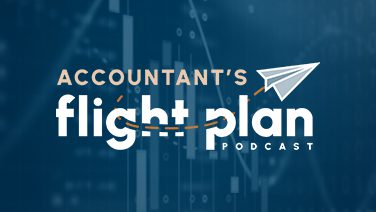
For firms in the seven and eight-figure gross revenue range, options for succession are rapidly changing.
Traditionally, succession meant transitioning ownership to younger partners inside the firm with extensive buyout periods and little negotiating leverage. But today, external options, including private equity (PE), are increasingly attractive. In fact, many exiting partners are now finding they can leave with more cash at close, while younger leaders stay on with minority stakes and help drive the firm’s growth. Valuations for exiting firm owners have never been higher driven by increased interest in the industry. For a deeper dive on Private Equity dealmaking, please see our PE Resources page.
Not every partner will value the same things when planning their succession, and cash at close is not always the most important factor in a sale. Sometimes, client satisfaction, employee retention or perhaps the general legacy of the firm is what is leading the transition plan. You can read our Private Equity Market Report to gain a deeper understanding of this buyer scenario and decide if it is right for you.
In this blog, we’ve compiled our observations and thoughts on an internal versus an external transition of your CPA practice for you to consider as you plan.
Internal Vs. External Succession
Promoting from within has often been thought to offer several advantages for accounting firms, including maintaining the firm’s established culture, values, and client service approach, which can allow clients and staff to experience a smoother transition with less disruption or turnover. In our twenty-plus years of accounting M&A experience, however, we have been privy to the outcome of right-fit and wrong-fit purchasers. If you have the wrong fit buyer in place, there will be attrition regardless of if the buyer is from within the firm or an external buyer. Just because your rising partners have experience in the practice does not mean they will create automatic continuity. Firm ownership is a bigger shift in responsibility than just being a CPA within the firm. Leadership takes vision and drive. If that’s lacking, then it will show up going forward. If skills and values are not aligned, growth will stagnate or decline. Regardless of how you source your new owner or managing partner, you need to ensure they have the right soft and hard skills to take over. You can check out our Seller’s Guide to Evaluating Buyers for more information on how to analyze your internal team.
Internal succession has been favored in the past as a way to preserve the firm’s legacy and independence, ensuring that retiring partners can align the firm with their vision while keeping its identity and reputation intact. Knowledge transfer is strengthened since internal successors are already familiar with client relationships, processes, and systems, reducing ramp-up time compared to previous external buyers. Additionally, promoting high-performing partners or employees motivates staff by signaling opportunities for advancement and helps retain top talent who see a clear career path. Internal succession typically involves lower transaction costs, avoiding broker fees, complex legal arrangements, and external valuations, while offering flexibility in structuring buy-ins and payouts. This being said, Internal successions often end up costing exiting partners greatly in purchase price.
In today’s competitive marketplace, an internal succession has inherently no competition and leaves all negotiating leverage in the hands of the buyer(s). Because of this, these deals are often tied to heavy earnout clauses, seller financing structures and do not often equate to a fair market valuation.
The market has changed dramatically. Up until the last few years, larger firms received on average a multiple or even lower of gross earnings, but now, they can receive sometimes more than 2x depending on a number of factors. For a dive into this, please see our Valuation Factors Report. Firms in this revenue range are now being priced on a factor of EBITDA, and those valuations can vary.
The recent increase in potential buyers for firms at this size means more opportunity to find a successor who will value and align with the existing vision of the practice. At present, external successors, especially Private Equity firms are increasingly interested in keeping partners invested in the firm and see acquisition as a way to gain top talent in the industry. When well negotiated, these deals can net exiting partners a great deal of cash at close and leave younger partners willing to stay on as equity partners able to capture more as the firm grows. This gives the team, partner,s and clients the continuity once only really offered through internal sales.
In traditional internal successions, leadership changes are often phased in gradually, enabling internal partners to assume responsibilities at a comfortable pace and avoiding sudden shifts in strategy or operations. However, internal succession can present challenges: younger partners or internal successors may struggle to fund a full buy-in, particularly at middle-market valuations, and limited cash flow can create financial strain, slow growth, or require debt. Retiring partners may expect higher multiples than internal buyers can pay, and price negotiations can delay or derail succession plans. Unlike an external sale, payments may be received over time, creating financial and personal uncertainty. Differences in vision, ambition, and risk tolerance among partners can generate conflict, while unequal contributions or perceptions of fairness may undermine team cohesion. Talent gaps may force the promotion of individuals who are not fully prepared, or simply not cut out for ownership, impacting client service and performance. Finally, without external capital or fresh perspectives, the firm may struggle to scale, innovate, or invest in technology, leading to potential stagnation if successors maintain the status quo rather than pursuing strategic growth.
External Succession Advantage
An external sale of an accounting firm offers several key advantages. It can provide higher cash at close, allowing exiting partners to take more money upfront compared to internal buy-ins or earnouts. Buyers, especially private equity firms, bring access to growth capital, technology, and operational support, helping to scale the firm more effectively. The process is typically professionalized, with experienced intermediaries structuring competitive deals to maximize valuation and terms. Selling externally also diversifies risk by transferring some operational and financial exposure away from the exiting partners. Additionally, rollover equity structures can allow younger partners to retain minority ownership, staying involved in the business while benefiting from future growth. Finally, a market-based sale offers price discovery, revealing the true value of the firm compared to internal perceptions.
Reshaping Succession Planning
Private equity is reshaping succession planning for middle-market accounting firms by offering solutions that were largely unavailable just a decade ago. PE buyers are increasingly attracted to these firms due to their predictable revenue streams, strong margins, and significant growth potential. The result is a fundamental shift in tradition: firms no longer need to choose between preserving internal continuity and achieving strong liquidity.
For many accounting firms in the $5M–$15M+ valuation range, external succession, particularly with private equity involvement, offers the optimal balance of immediate financial reward and sustained leadership engagement. That said, internal succession can remain a viable option if preserving firm culture is the top priority and financing among internal partners is feasible, but the availability of external alternatives now provides middle-market firms with unprecedented flexibility in planning their exit.
Either way, preparation matters. Strengthening margins, systems, and leadership depth will put you in the best position no matter which path you choose.
Considering your options?
Poe Group Advisors has helped hundreds of firms navigate succession. Our Seamless Succession™ process is designed to create clarity, prepare your firm, and connect you with the right fit buyers and investors, all while protecting your confidentiality.






